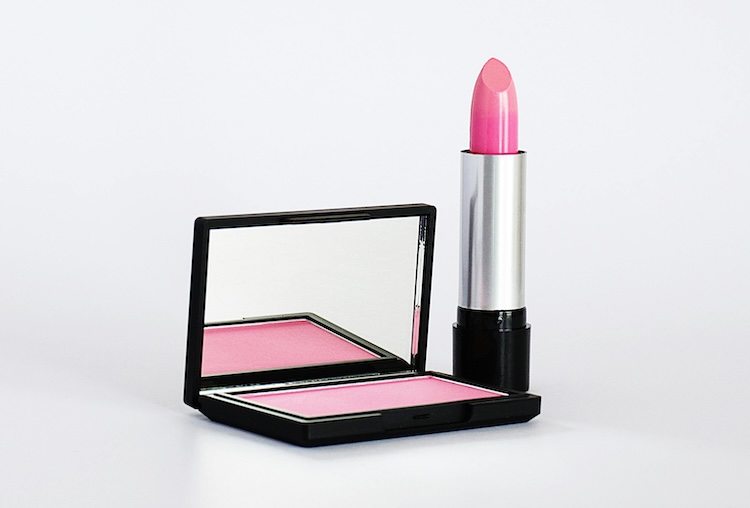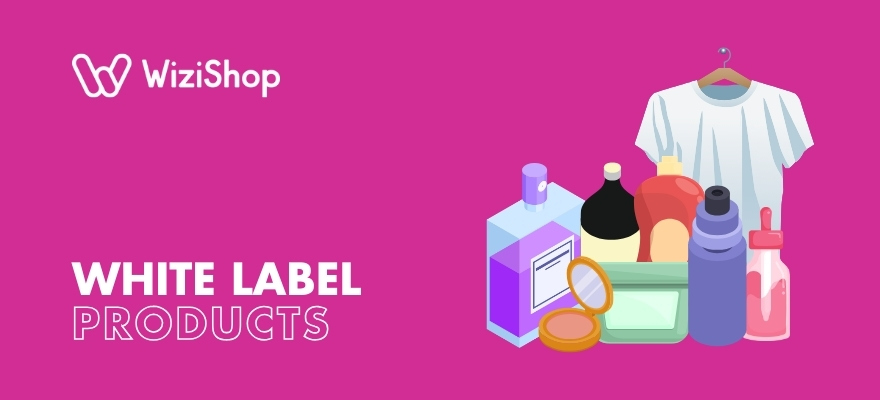In the bustling world of ecommerce, white label products stand out as a beacon for entrepreneurs eager to expand their market reach without the complexities of product development.
In this article, we delve into the essence of white labeling—where businesses rebrand and sell generic products as their own, offering insights on its advantages, challenges, and strategic approaches.
We also tell you all about the top white label products to sell on the internet and how leveraging white label products can streamline your business model and potentially lead to substantial growth and profitability!
Table of contents
- Definition: What is white labeling?
- Are white label products legal?
- What are the advantages and disadvantages of selling white label products?
- Can you make money with white label products?
- Top 11 white label products to sell online
- Choosing a supplier: Where do you find white label products for your business?
- Tips for marketing white label products
Definition: What is white labeling?
White labeling refers to the practice where a product or service is produced by one company but is branded and sold by another company under its own name and branding. This allows the seller to offer the product or service without having to invest in developing it themselves, focusing instead on branding and customer service. White labeling enables companies to expand their product offerings and enter new markets efficiently.
It's also important to note that white label products aren't the same as private label products, although many people use the terms interchangeably.
White label products are generic and produced in bulk for multiple retailers to rebrand and sell. The product itself is the same across all brands that purchase it. In contrast, private label products are manufactured exclusively for one retailer and sold only under that retailer’s brand. This exclusivity can create a unique market presence.
In essence, white label products are about accessibility and ease, allowing multiple brands to sell the same product under their own names with minimal customization. Private label products, on the other hand, focus on differentiation and exclusivity, giving retailers more control over their offerings to stand out in the market.
Are white label products legal?
You can breathe a sigh of relief: yes, white label products are legal and a widely accepted business practice! Companies that create these products typically offer them without branding so that other businesses can brand and sell them as their own.
This arrangement is formalized through contractual agreements, ensuring that all parties comply with relevant laws and industry regulations. It allows companies to expand their product lines and reach without investing heavily in research, development, or manufacturing infrastructure.
What are the advantages and disadvantages of selling white label products?
White label products offer several benefits and challenges that you should consider if you're thinking about using this strategy for your online store.
Advantages
- Cost efficiency: You'll save on development and production costs by purchasing and rebranding existing products.
- Quick market entry: White labeling allows you to launch products quickly without the lengthy timeline associated with product development.
- Focus on branding and marketing: You can concentrate resources on branding and marketing instead of product development.
- Expansion of product line: It enables you to expand your product offerings rapidly, appealing to a broader group of consumers.
- Reduced risk: Since the product is already developed and tested, the risk associated with market acceptance is significantly reduced.
Disadvantages
- Lack of control: You have less control over product features, quality, and the manufacturing process.
- Dependency: Reliance on another company for product manufacturing can lead to potential supply chain issues.
- Limited differentiation: Since other companies may sell the same product under different brands, it can be hard to differentiate in the market.
- Reputation risk: Any quality issues or negative customer experiences are associated with your brand, not the manufacturer.
- Market saturation: If too many businesses sell the same white label product, it can lead to intense competition and reduced profitability.
Can you make money with white label products?
Yes, you can definitely make money with white label products. This business model allows companies to promote and sell existing products under their own brand without the overhead of product development and production. By focusing on effective branding and marketing strategies, companies can attract a dedicated customer base.
The key to profitability lies in choosing high-quality niche products from reliable suppliers and effectively differentiating your brand in the market to stand out from competitors. Furthermore, maintaining good supplier relationships and efficient supply chain management can help maximize margins and ensure happy shoppers, leading to repeat business and sustained profitability.
Top 11 white label products to sell online
1. Clothing

Clothing is an excellent white label product due to its broad appeal and extensive demand. Apparel such as t-shirts, jackets, and activewear can be easily branded to reflect a company's identity.
Whether you want to create a t-shirt business, start a swimsuit line, or sell other fashion-related goods, white labeling will allow your brand to swiftly launch new collections, keeping pace with seasonal trends or specific style demands. In addition, the option to personalize items with one-of-a-kind logos, colors, and designs can help enhance the exclusivity of your offerings.
2. Makeup

Foundation, lipstick, eye shadow, and more... Starting a makeup business allows you to offer a diverse range of items, all customizable to reflect current beauty trends!
Makeup is a prime candidate for white labeling, being high in popularity and product turnover.
Today, a limited number of manufacturers produce many of the makeup goods available on the market. In fact, you'll often find that various items may even share identical formulations. What distinguishes these products is their branding, packaging design, and the marketing efforts behind them.
3. Pet supplies

With a growing number of pet owners looking to maximize their animal companions' health, comfort, and happiness, the pet supply industry can be an excellent one to enter for new and experienced e-tailers alike.
Items that work well in this category for white labeling include essentials like pet toys, grooming tools, beds, and accessories, which require minimal customization but offer the opportunity for branding. These goods are frequently purchased and replenished, providing steady sales, and their standard nature makes them great for white labeling.
4. Essential oils

Essential oils offer various benefits, including stress relief, improved sleep, and enhanced mood through aromatherapy. They can be used in diffusers, applied topically when diluted, or added to personal care products.
To successfully sell white label essential oils via your online store, focus on sourcing high-quality, pure oils, provide detailed usage and safety information, and highlight their natural and therapeutic properties. Utilize attractive packaging and offer blends or themed sets to cater to specific wellness needs or occasions.
5. Dietary supplements

People take dietary supplements for numerous reasons, such as to fill nutritional gaps, support overall health, and boost fitness outcomes. When selling them as white label products on the internet, you'll need to be sure that they come from a reputable manufacturer to guarantee quality and safety, also verifying the legal considerations for your particular location.
Remember to clearly communicate the benefits and ingredients of each supplement your online store features. Also, provide comprehensive product information and usage guidelines to educate consumers.
6. Cleaning products

Cleaning supplies are excellent items to sell on the web due to their high and consistent demand, driven by the necessity of maintaining cleanliness in homes and workplaces.
As white label products, cleaning products are ideal because they require minimal innovation yet allow for easy branding, such as labeling with a company's logo. Their regular use ensures frequent repeat purchases, making them a profitable choice if you're looking to expand your product line without investing lots of money in new product development.
7. Skin care

Skincare products are gaining popularity due to the boost in awareness of skin health and beauty trends. Consumers are more educated about the benefits of skincare routines and are seeking products that offer preventive care and solutions for specific skin concerns.
As an ecommerce entrepreneur interested in selling white label products, skin care can be a great option for your business. Note that many shoppers are becoming increasingly concerned with the ingredients of products that go on their skin, so prioritizing quality in your offerings will be paramount to your success when you start a skincare line.
8. Reusable water bottles

With growing environmental concerns and a shift towards sustainable living, selling reusable water bottles can help you appeal to eco-conscious consumers looking to reduce single-use plastics. They're also great items to feature if your target audience consists of fitness enthusiasts, highlighting the importance of staying well hydrated.
When availing of white labeling for your water bottles, focus on special design elements such as distinctive shapes, vibrant colors, or personalized prints. You might also opt to offer innovative features like built-in filters, temperature retention, or collapsible structures, and emphasize eco-friendly materials and sustainable manufacturing processes in your marketing.
9. Tote bags

Tote bags are versatile, used for shopping, commuting, or as eco-friendly alternatives to plastic bags. They can be made from various materials, including cotton, canvas, and recycled synthetics.
When it comes to selling white label tote bags, aim to differentiate your offerings with special designs, vibrant colors, or functional features like pockets and zippers. Remember to shine the spotlight the durability and sustainability of the materials used. Effective marketing should include lifestyle images that showcase the practicality and style of the bags.
10. Candles

Whenever you need to instantly elevate your living space, a well-crafted candle will often do the trick! Candles enhance ambiance, provide relaxation, and can boost mood with delightfully aromatic scents.
They can work quite well with white labeling, especially if you concentrate on offering a variety of fragrances and styles to cater to diverse customer preferences. In addition, you'll want to use attractive, eco-friendly packaging and emphasize unique features like natural waxes or therapeutic essential oils.
11. Phone accessories

These days, it seems you can find somebody holding a smartphone almost everywhere you go. It's no secret that smartphone use has increased over time, and with so many consumers owning one of these technologically advanced mobile devices, there's also great demand for various accessories to optimize their use.
Phone accessories like cases, chargers, screen protectors, and earphones are all excellent white label products, being relatively inexpensive to make and easy to customize. Note that making shoppers aware of your phone accessories' compatibility with popular devices and emphasizing rapid order fulfillment are advantageous for helping to attract consumers.
Choosing a supplier: Where do you find white label products for your business?
Selecting the right white label manufacturer for your products is crucial to ensure product quality and reliability. Here are a few tips to guide you in selecting the best supplier:
- Evaluate product quality: Request samples to assess the quality firsthand. Make sure that the products meet your standards and are consistent with what you want to offer your customers.
- Check manufacturing capabilities: Ensure the white label manufacturer has the capacity to scale production according to your business needs. Understanding their production limits is vital to meet demand, especially in peak seasons.
- Research reputation: Investigate the supplier’s reputation within the industry. Look for reviews, testimonials, and feedback from other businesses that have partnered with them. A reputable supplier with a track record of reliability and quality will be a safer choice.
- Examine compliance and certifications: Verify that the white label manufacturer adheres to industry standards and regulations, especially if you're dealing in sectors like food, cosmetics, or electronics. Check for relevant certifications that assure compliance with safety and quality standards.
- Assess communication and support: Choose a supplier that communicates clearly and promptly. Effective communication can prevent misunderstandings and ensure smoother operations. Additionally, good customer support from the supplier can help quickly resolve any issues that arise during the partnership.
Tips for marketing white label products
Marketing white label products effectively requires an approach that emphasizes brand differentiation, audience engagement, and strong value propositions. Here are three comprehensive tips to help you successfully market white label products:
Create a distinct brand identity
Building a unique brand identity is crucial when marketing white label products, as these products are also available to other resellers.
Start by understanding your target audience deeply—what appeals to them, their purchasing habits, and what drives their loyalty. Craft a compelling brand story that resonates with this audience, emphasizing the values and mission of your brand.
Design distinctive packaging and develop a consistent visual style across all your marketing materials, from your website to your social media profiles. This can help establish a recognizable presence in a crowded market.
Moreover, tailor your product offerings by adding features or customizations that aren't widely available from other sellers of the same white label products, thereby enhancing the uniqueness of your brand.
Leverage digital marketing platforms
Use digital marketing platforms effectively to reach and engage potential customers. Implement search engine optimization (SEO) strategies to improve your online visibility when potential customers search for products you offer.
Utilize social media marketing by creating engaging content that highlights the lifestyle or the solutions provided by your products, including testimonials from satisfied shoppers and user-generated content to build trust and social proof.
Consider email marketing campaigns to nurture leads and retain customers, offering exclusive promotions and updates about new product launches. Paid advertising, like Google Ads and Facebook Ads, can also be crucial in driving targeted traffic to your store, especially for newly launched products.
Focus on customer experience and satisfaction
Providing shoppers with a top-notch experience can set your brand apart from a sea of competitors! First, you'll need to ensure that your website is user-friendly, secure, and optimized for mobile devices. Aim to also always supply excellent customer service, including easy return policies and prompt, helpful responses to inquiries.
Don't hesitate to collect buyer feedback regularly and use it to refine your products and services. In addition, delight your customers with unexpected perks like free samples, loyalty rewards, or personalized notes in their orders.
By exceeding customer expectations, you not only retain existing customers but also turn them into advocates for your brand, leveraging positive word of mouth to enhance your product's appeal and credibility.










